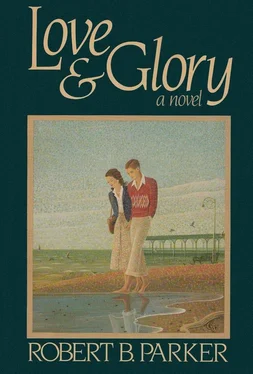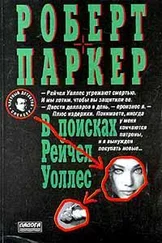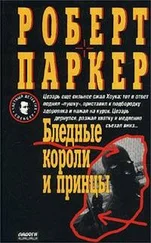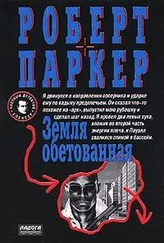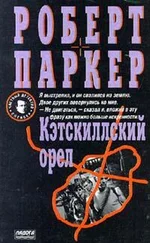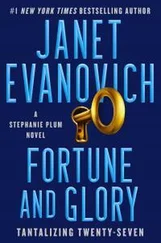“And you’re looking now?”
“Yes,” she said.
“Wife and mother’s not enough?”
“No.”
As soon as the weather got warm I went to work part time for a carpentry contractor in Cambridge. I took classes in the morning, did framing and some finish work in the afternoon, studied in the evening, and in eighteen months I had a B.A. and twelve hundred dollars in the bank. That fall I was accepted into the graduate program in English at Taft. Because she went only part time, Jennifer was still in the program working on an M.A. and I had caught up with her. I had a teaching fellowship and that entitled me to a desk across from Jennifer’s in the teaching fellows’ office. We were students together again, and teachers as well. Maybe you couldn’t go home again, but you could visit the old neighborhood.
Jennifer and I drank coffee together and talked of Andrew Marvell and the Pearl poet, of Marlowe and Sidney and Dryden and Pope. We argued whether The Waste Land was a magnificent failure and whether the new criticism was the only way to approach literature. We spoke of Cleanth Brooks and Allen Tate and Austin Warren. We never spoke of her husband or her daughter. Every day she rode into school with John Merchent in a Mercedes convertible and every evening she rode home with him.
It was at the department Christmas party that I first actually spoke to him. Jennifer introduced us and drifted off to another group.
“Sure, I remember Boone,” Merchent said. He put out his hand. “Good to see you again, Adams.”
We shook hands. “Nice to be here,” I said.
“I understand you are a master’s candidate with us.”
“Yes,” I said, “I’m a late bloomer.”
Merchent smiled. “Never too late,” he said. “As Jennifer also demonstrates. You and she have become real chums, it seems.”
“Yes,” I said. Merchent was still taller than me. Blond, with a smooth face and good clothes. He held himself erect and still, as if the weight of his self-satisfaction gave him an imperturbable ballast.
“We really must get together,” he said. “Have you out some Sunday afternoon to drink some beers and chat.”
“Yes.”
“It’s very good for Jennifer, I think, to have a chum like you. She tends to be a bit overwhelmed by some of the demands of university life, and scholarship. In my position I can only help her so much, of course.”
“She seems fine to me,” I said.
“Oh, surely. She’s much better now that she’s out of the house and has something to occupy her mind. I’m afraid motherhood and housewifery were not what Jennifer was cut out for.”
“She’s doing well in class,” I said.
“Yes. She’s a conscientious student. Probably got some of that from me. When I was doing my book on Teasdale, I had her as what amounts to a research assistant and she learned a great deal about scholarship and research and the standards that scholarship sets.”
“Sara Teasdale?” I said.
“Yes. I did the biography of her for the Twayne series.”
“You a Teasdale specialist?” I said.
“Well, in a sense,” Merchent said. “I have become somewhat of a specialist because no one else has done the research. My critical study of her poetry will be out in the fall, and we’re negotiating for a casebook.”
“A Sara Teasdale casebook,” I said.
“Yes. I was really quite fortunate to find a whole area of literature like that in which little work had been done.”
“Did you do your dissertation on her?” I said. He taught the English eighteenth century.
“No, my dissertation was on Nahum Tate,” he said. “Let me offer you some advice, Boone. If you’re going to publish, it’s important to stake out fields of research that haven’t been overharvested.”
I nodded again.
“Have you developed a special interest yet?” Merchent asked.
“I sure have,” I said.
“American or English?”
“American,” I said.
He nodded approval. “It’s a field that needs some fresh scholarship,” he said. “Good seeing you, Adams, let’s get together soon, some Sunday afternoon to drink some beers and chat.”
“Sure,” I said. And Merchent smiled and went to get more sherry and strike up a conversation with the chairman. I looked around. Jennifer, holding a barely sipped plastic glass of sherry, was sitting on the arm of a sofa, listening intently to a young woman explain the problems associated with water fluoridation. The woman wore a white T-shirt and a loose blue denim jumper. She was sitting on the floor with her legs crossed under the skirt. Beside her a young man squatted on his heels. He had on a tan corduroy suit and a plaid flannel shirt with a black knit tie. His hair and beard were untended and long, and his eyeglasses were the kind that the army used to issue, neutral-colored plastic frames with round lenses. I didn’t know the girl. The guy squatting beside her was named Allan Raskin. He was writing his doctoral dissertation on Lawrence Ferlinghetti.
“It’s an intrusion of my right not to ingest fluoride,” the girl in the denim jumper was saying. Her dark hair was long and very curly. “The government has no business medicating me against my will.”
Allan Raskin nodded furiously. “Absolutely. There’s research that clearly shows fluoride to be poisonous.”
“That’s not the point,” the girl in denim said. “Even if it were perfectly safe, the government has no right to put it in my drinking water. That’s a fascist act.”
Raskin nodded again. He pointed at her with a shake of his hand. “You’re damned right, Trudy. That’s a very good point. Even if it’s harmless, it’s fascist.” He nodded again. And kept nodding as if he were following the train of implications even deeper within.
“Are you opposed to chloride too?” Jennifer said.
Trudy shook her head very hard. “No, I won’t be sidetracked,” she said. “That’s a red herring, Jennifer. It’s not to the issue. It’s exactly the kind of smoke screen they throw up to get our minds off the real issue, which is, and very clearly so, fascism.”
Jennifer saw me looking at her across the heads of the anti-fascists. She glanced quickly down at them, saw they weren’t looking at her, glanced back up at me, and crossed her eyes. I took a step closer and said, “Excuse me, Jennifer, I’d like to show you something over here if you could give me a minute.”
She nodded. “I’ll be back, Trudy,” she said, and stood up and walked with me to the other corner of the room.
“Thanks,” she said. “I have learned more about fascism and crypto-fascism and covert fascism than I ever really wanted to know.”
“How come people whose area of specialization and, you’d assume, interest, is literature spend all their time talking about politics?”
“They don’t,” Jennifer said. “Just the graduate students do that. The undergraduates talk about grades and the professors talk about tenure and promotion.”
“Gee,” I said. “It’s not nearly so platonic as I expected.”
“But it’s quite a lot of fun,” Jennifer said. “Try staying home for three years with a kid.”
“It’s not like your life has been without adventure though,” I said. “I understand you got to help your husband do his biography of Sara Teasdale.”
She looked at me carefully. I kept my face neutral. “One can do a first-rate study of a second-rate figure.”
“Sure,” I said.
“It’s a book, Boonie, and he’s got another coming out in the fall. What have you ever written?”
“Nothing much,” I said. “I’ve kept a kind of a journal. I’ll show it to you someday.”
Читать дальше
